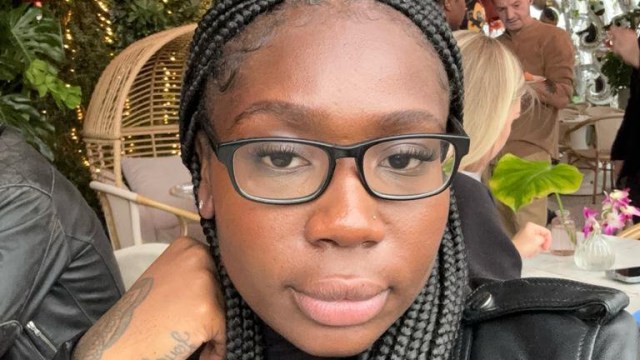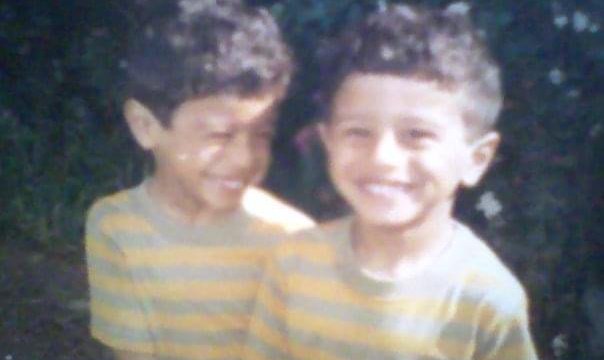Working in a restaurant in Blackpool, Jade Barnett felt deeply uncomfortable when a customer asked if she could touch her Afro hair, but she felt she had no choice but to reluctantly agree.
It was just one of the many moments when Jade was made to feel different as there was no one else who looked like her when she was suddenly moved in care from the culturally diverse cities of London and Birmingham, to the predominantly white seaside town.
“It particularly hit me hard when I was out by myself such as travelling to college or going to work,” Jade, now 23, recalls. “A lot of people in the area I was living in were elderly and they would stare at me as if they had never seen a black person before. In London, a stranger has never asked to touch my hair and I didn’t feel it was right.”
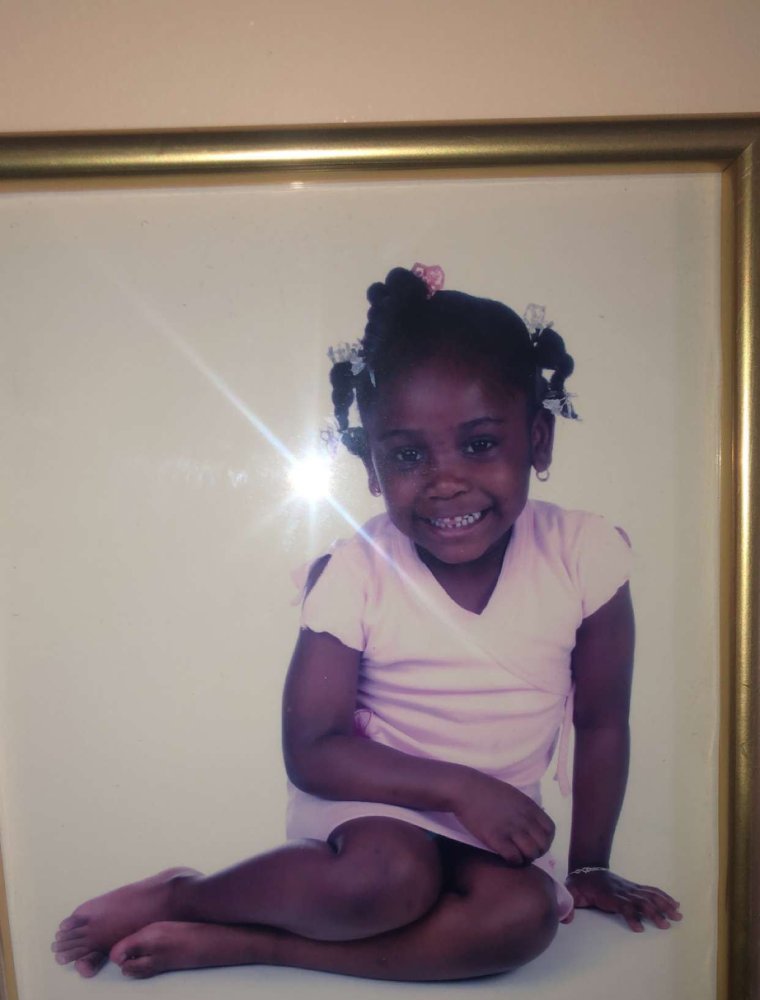
Jade, who went into care at the age of 15, was moved hundreds of miles away to a children’s home in Blackpool just before her GCSEs.
She is sharing her story about the cultural difficulties young people in care can face when they are suddenly taken away from everything they know and people who understand their cultural needs.
“Removing a young person from their home is already hard enough, but if on top of that, you are placing them in a location that isn’t familiar to them and is not diverse and doesn’t meet their cultural needs, it is probably one of the hardest challenges you can give a young person navigating through care,” she says.
“It can make young people feel really insecure about where they come from and their identity as individuals. If you are constantly around people who don’t look like you, you are going to start questioning yourself as to whether your hair is good enough or your skin is good enough.”
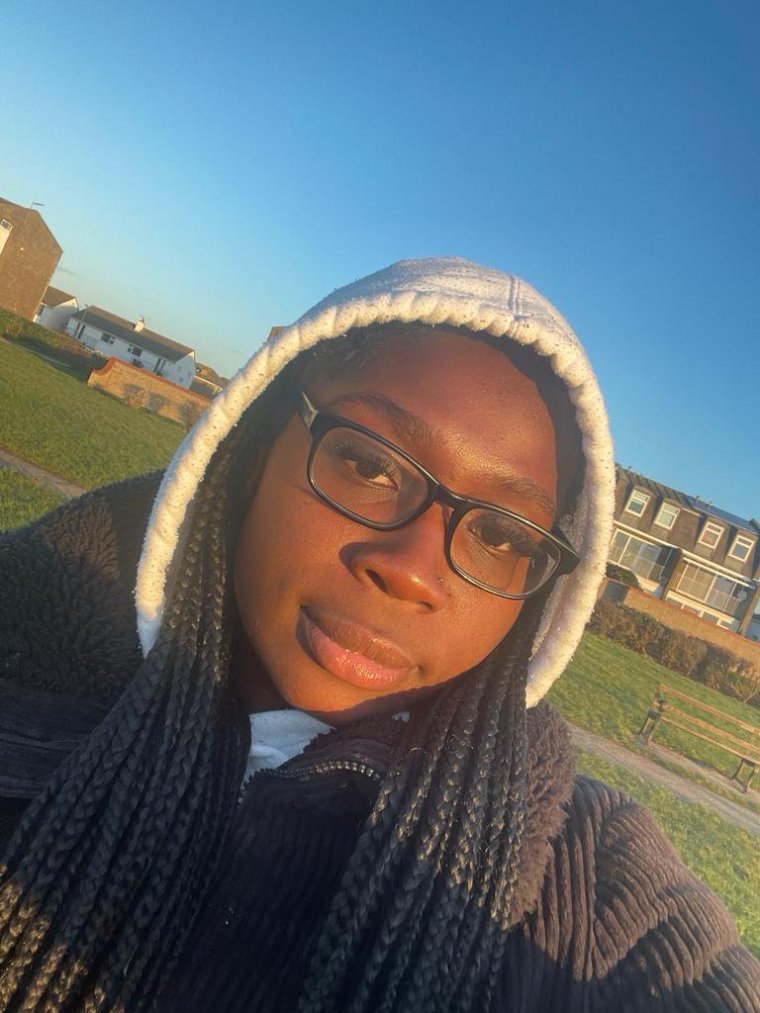
Jade, who was living in Lewisham, London, went into care after experiencing issues at home and school. At first, she was moved to foster placements near her home area, but she was later moved to Birmingham.
Although Jade had to get used to new surroundings, start a new school and make new friends, she says one of the only consolations was that Birmingham was a big city like London and she saw people from different ethnicities all around her.
However, after just six months, she came home from school to be told she was being moved to a children’s home in Blackpool and a taxi was already waiting to take her there.
Jade was initially told she would only be at the children’s home in Blackpool for two weeks, but she ended up living there for 18 months.
She says she was grateful that one of the carers at the children’s home was black and she helped Jade when it came to travelling to nearby cities to get items like specialist hair products and Caribbean food.
“I am just thankful I had someone like her as without her, I would have struggled a lot more than I did,” says Jade. “Having someone who authentically understood how you felt in the sense of being in a minority meant a lot.
“She definitely made a piece of me feel at home. But she wasn’t always at the children’s home and I would always be looking at the rota and counting down to when she next came in.
“Words can’t explain what she did for me. I still speak to her now and she invited me to her wedding last year.”
Jade did her GCSEs and her first year of college while living in Blackpool and although she settled and made friends, she knew she wanted to get back to London.
She is now living in her own place in Lewisham and working for the Prince’s Trust as a youth development lead, as well as having various ambassador roles with organisations and being involved with Become, the charity for children in care and young care leavers, to advocate for the next generation.
i has launched its Christmas appeal Together We Care in aid of Become. We initially set a goal of £75,000, but thanks to the generosity of our readers, we surpassed this and have now doubled our target to £150,000 so Become can help more children in care and young care leavers.
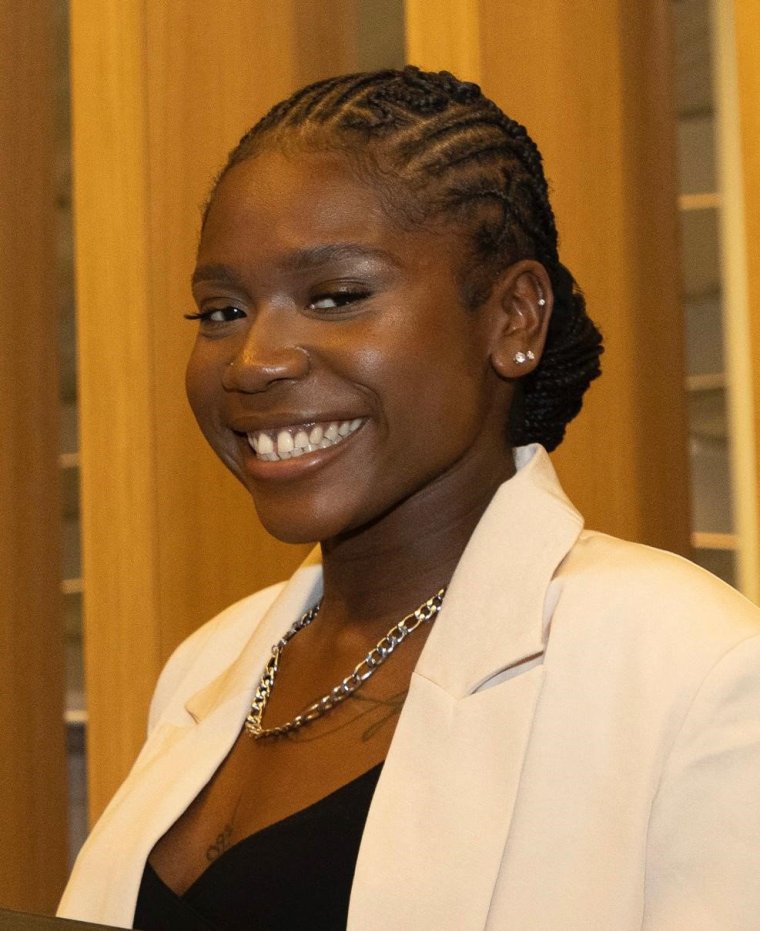
Jade says: “I think local authorities need to be more focused and understand the problems with moving a young person to somewhere that doesn’t meet their cultural needs as it takes away their sense of hope and identity.
“I think social workers and support workers and people surrounding the young person while they are in care should invest in things such as cultural competency training, so even if a young person is placed in a home where the family isn’t of the same ethnicity or cultural background, at least the foster carers or placements can be equipped for that.
“Even if I was placed in a home where everyone else was white, if they put things into place such as me being able to access the hair products I needed or if they learned about my culture and the foods that I eat, that would have made me feel more comfortable.”
Jade, who has now rebuilt a relationship with her mum and sisters, adds: “Even though my journey in care was very hard, I was able to flip the script and am doing a lot better now.
“Become is important because it gives young people like me platforms to allow local authorities and organisations to know there is a lot of stuff going on in the care system which needs to change.
“Our voices should be wake up calls to those who can make that change. We have got a long way to go and have to keep pushing.”
How to donate
i has launched its 2023 Christmas Appeal “Together We Care” urging generous readers to raise money to help Become give vital advice and practical support to 1,300 children in care and young care leavers.
We initially set a fundraising target of £75,000 but thanks to the generosity of i readers, we now hope to raise £150,000 for the charity.
Click here to read more about what Become does: https://becomecharity.org.uk/
Here’s what your donation can provide:
- £2.50 sends a handwritten Christmas card to a child in care.
- £5 helps a child in care stay in touch with brothers or sisters living apart from them.
- £12 gives Christmas dinner to a young person who recently left care.
- £25 gives a Christmas present to a child in care or young care leaver.
- £45 pays for a young person to travel to Parliament to share their story with interested MPs.
- £50 pays for employment coaching to help someone leaving care find a job.
- £75 provides one-to-one guidance for a young person applying to university.
Click here to donate: www.becomecharity.org.uk/i-appeal
